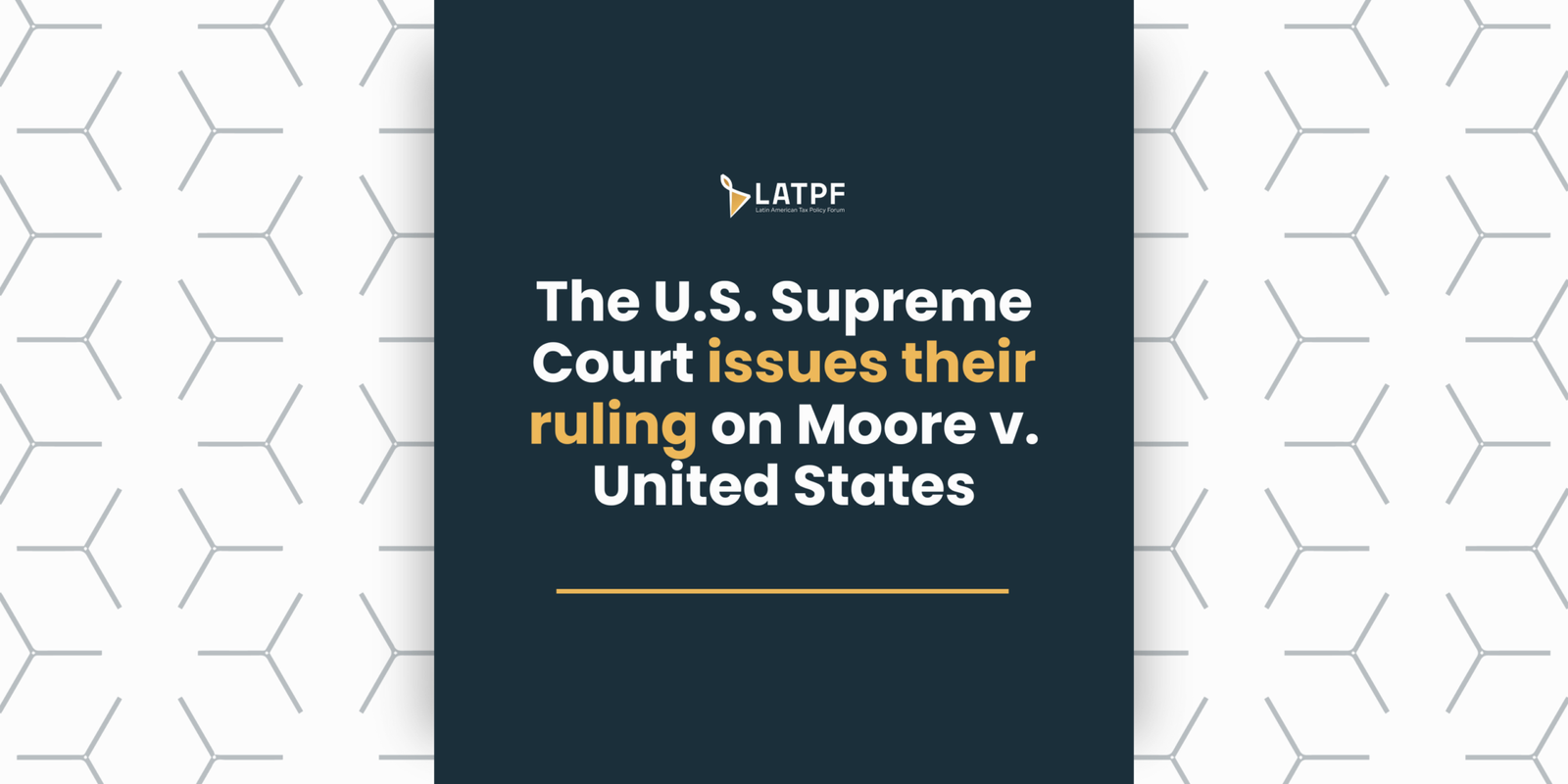🌎 Today the U.S. Supreme Court published their much-anticipated decision on Moore v. United States, and it is a (debatably) narrow victory for the government. Justice Brett Kavanaugh delivered the opinion of the Court (by a 7-2 majority, with Justices Jackson and Barrett having filed concurrent opinions, and Justice Thomas having filed a dissent).
The court held that the Mandatory Repatriation Tax (MRT) under the Tax Cuts and Jobs Act (TCJA), “which attributes the realized and undistributed income of an American-controlled foreign corporation to the entity’s American shareholders, and then taxes the American shareholders on their portions of that income—does not exceed Congress’s constitutional authority.” (p. 2)
That said, the majority opinion clarifies that the Court’s holding is limited to:
“(i) taxation of the shareholders of an entity,
(ii) on the undistributed income realized by the entity,
(iii) which has been attributed to the shareholders,
(iv) when the entity itself has not been taxed on that income.” (p. 22-23)
The Court further states that its holding “applies when Congress treats the entity as a pass-through. […] [N]othing in this opinion should be read to authorize any hypothetical congressional effort to tax both an entity and its shareholders or partners on the same undistributed income realized by the entity. In such a scenario, the entity would not simply be a traditional passthrough.” (p. 23)
You can find the full decision in PDF attached to this post. There may be some elements of the U.S. Supreme Court’s decision that might be communicable to the legal systems of LatAm jurisdictions, but it is always important to check carefully whether the premises upon which the Justices built their arguments are also applicable in the context of local constitutions and prior court precedents.


